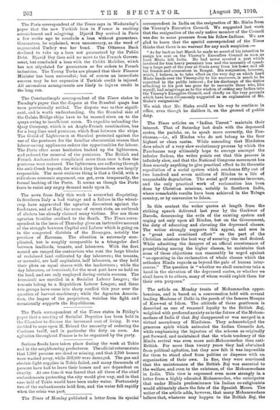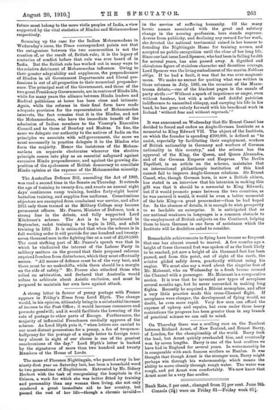The article on Monday treats of Mohammedan appre- hensions, and
is based on a conversation held with several leading Moslems of Delhi in the porch of the famous Mosque of Kuwwat ul Islam. The attitude of these gentlemen is described as one of reasoned loyalty to the British _Raj, weighted with profound anxiety as to the future of the Moham- medans of India if that Baj disappeared or was merged in a virtual ascendency of Hinduism. They acknowledged the generous spirit which animated the Indian Councils Act, while emphasising the injustice of the scheme as originally put forward, and maintained that the whole tendency of the Hindu revival was even more anti-Mohammedan than anti- British. For more than twenty years they had abstained from political agitation, but they now felt it was impossible for them to stand aloof from politics or dispense with an organisation of their own. In fine, they were convinced that the maintenance of the British Raj was essential to the welfare, and even to the existence, of the Mohammedans in India. This view is expressed even more strongly in, a letter from a highly educated Mohammedan, who anticipates that under Hindu predominance his Indian co-religionists would ultimately share the fate of the Spanish Moors. The writer of the article adds, however, that many Mohammedans believe that, whatever may happen to the British Raj, the
future must belong to the more virile peoples of India, a view supported by the vital statistics of Hindus and Mohammedans respectively.







































 Previous page
Previous page